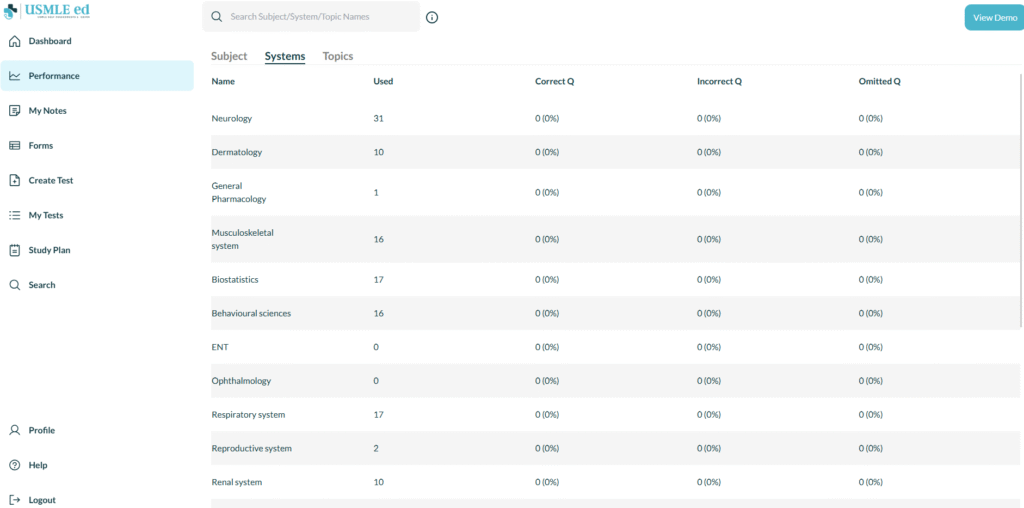If you’re preparing for the USMLE, you’ve probably been told countless times that using a USMLE Question Bank is a must. But can it really help you match into your dream residency? The answer: absolutely—if you use it right.
In this post, we’ll explore how a USMLE Question Bank does more than just prep you for Step exams—it plays a pivotal role in your match success.
What Is a USMLE Question Bank?
A USMLE Question Bank (QBank) is a curated set of practice questions designed to simulate the content, format, and difficulty of the USMLE Step 1, Step 2 CK, and Step 3 exams. These QBanks often include:
- Thousands of multiple-choice questions
- Detailed answer explanations
- Performance analytics
- Custom quiz-building features
- Simulated self-assessments or NBME-style exams
Why Your Choice of USMLE Question Bank Matters?
High QBank Scores Often Correlate With Real USMLE Performance
According to data from thousands of test-takers, there is a direct correlation between QBank performance and USMLE scores. Students consistently scoring >70% on high-quality QBanks like USMLEed.
This matters because a high Step score—especially on Step 2 CK now that Step 1 is pass/fail—is a significant factor in residency selection.
Your QBank Builds More Than Just Exam Readiness
A solid USMLE Question Bank teaches:
- Clinical reasoning
- Interpretation of lab data
- Differential diagnoses
- Patient communication and ethical scenarios
These skills are essential not only for your Step exams but also for clinical rotations and residency interviews. When you train with case-based QBank questions, you’re not just memorizing—you’re learning to think like a resident.
QBank Analytics Can Guide Your Study Plan
Modern QBanks don’t just test you—they teach you. They offer performance analytics that track your progress by system, subject, and question type. This insight helps you:
- Identify weak areas quickly
- Customize review sessions
- Measure readiness with predictive scores
- Avoid overstudying mastered topics

Smarter Study = More Time for Application & Research
When you use your USMLE Question Bank effectively, you can study smarter, not harder. This means:
- More efficient use of your prep time
- Less burnout from content overload
- More time for CV-building, case reports, clinical research, and volunteer work—all of which strengthen your residency application.
Programs Know the Value of High USMLE Scores
Even though Step 1 is now pass/fail, Step 2 CK has become the new gatekeeper. Many residency programs still heavily rely on this score to screen applicants.
A USMLE Question Bank is your best bet for boosting that score. It provides:
- Realistic practice questions in exam-style format
- Time pressure simulation
- Clinical vignettes that mimic NBME exam logic
The better your performance here, the more competitive your application looks to program directors.
USMLE Question Banks Also Prepare You for the Interview
This is a bonus benefit many students overlook.
The clinical logic and reasoning you build while using a QBank often translates to better performance in residency interviews. You’ll be more confident when answering questions like:
- “How do you approach a difficult diagnosis?”
- “Can you walk me through your clinical thinking?”
- “Tell me about a time you made a mistake in clinical judgment.”
If you’ve drilled thousands of cases, you’ll naturally be more confident, articulate, and logical in your answers.
How to Maximize Your USMLE Question Bank for the Match
It’s not just about having a QBank—it’s about using it strategically. Here are a few high-yield tips:
1. Start Early and Be Consistent
Don’t wait until the last few months. Start using your QBank during content review and allocate daily blocks.
2. Focus on Learning, Not Just Scoring
Read explanations thoroughly, especially for wrong answers. Learn why you made mistakes.
3. Mix Systems and Subjects
Train your brain to handle random, mixed-question blocks like the real exam.
4. Simulate Full-Length Exams
Build your test-taking stamina with 4-block practice tests every 2–3 weeks.
5. Track and Reflect on Performance
Use the analytics dashboard to pinpoint weaknesses. Adjust your study plan accordingly.
Final Thoughts
Your USMLE Question Bank isn’t just a study tool—it’s a match tool. When used correctly, it builds the knowledge, reasoning, and confidence needed not only to ace your exams but also to impress residency programs.
If you’re serious about matching into a top residency, don’t just do questions. Master them. Your match depends on it.


Leave a Reply